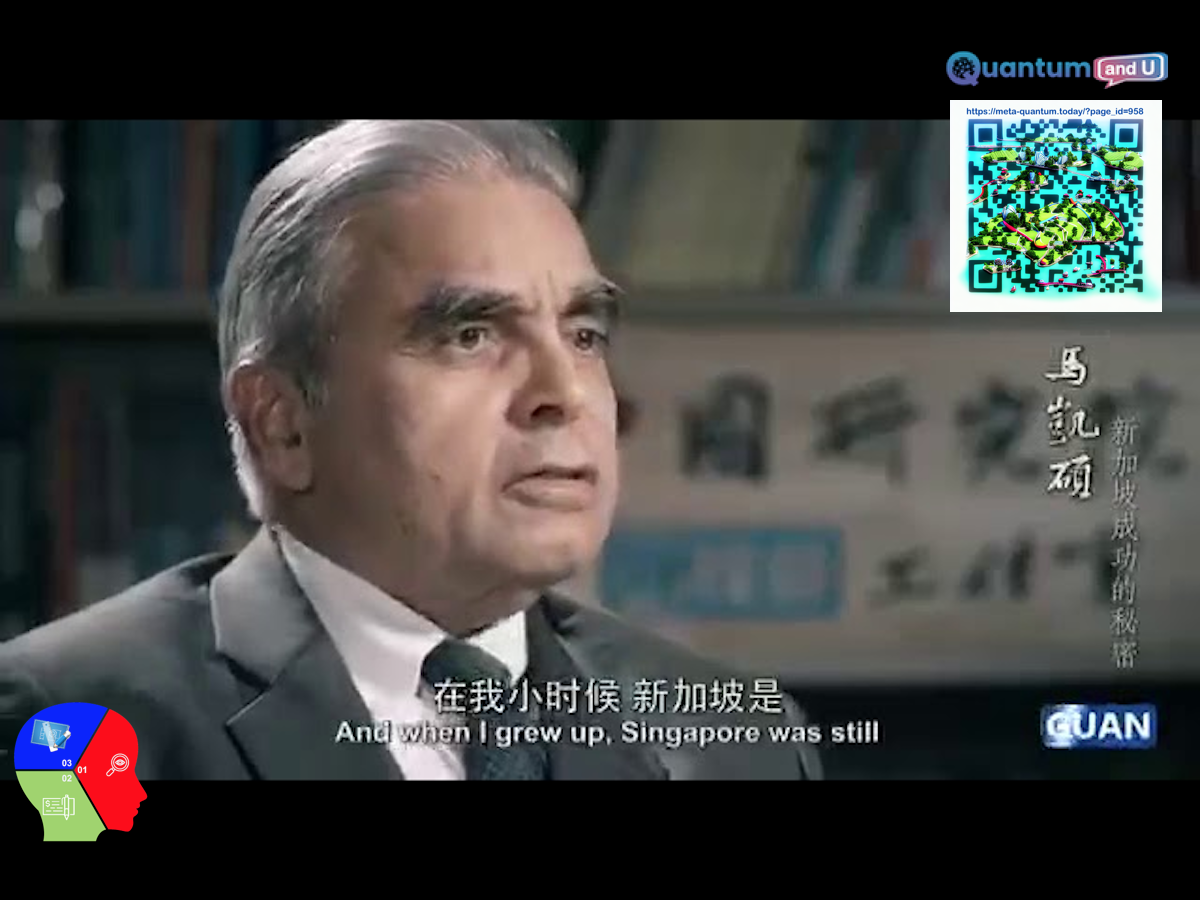Introduction:
In this illuminating video review, a Singaporean, Dr Kishore Mahbubani, denizen of nearly seven decades imparts his first-hand encounter of Singapore’s remarkable metamorphosis from an impoverished nation to one of the globe’s most affluent countries. His singular viewpoint, deepened by his extensive tenure in Singapore, chronicles the nation’s adversities, victories, and the national spirit that fostered its triumph. With skillful precision, he maps Singapore’s transformation from indigence to global recognition in terms of its robust economy, advanced infrastructure, and superior quality of life. The speaker’s thorough exploration of the “secret formula” instrumental to Singapore’s prosperity is captivating. He unveils ‘MPH’, a series of strategic blueprints that fueled the nation’s progress, epitomizing the pillars crucial to Singapore’s evolution. This review melds personal experiences, profound insights, and a comprehensive account of Singapore’s elevation from deprivation to worldwide economic preeminence. The speaker’s distinct perspective and disclosure of the ‘secret formula’ MPH provides viewers with a compelling glimpse into a nation’s strategic resolve to shape its own future. This video is from Dr. Nagib Omar
Related Sections:
- Meritocracy (M): The first pillar of Singapore’s success is meritocracy. The country focused on selecting the best individuals to lead and govern. Unlike many third-world countries that appoint relatives or acquaintances to key positions, Singapore prioritized competence and talent. The example of Lee Kuan Yew, Singapore’s Prime Minister, illustrates how the best person for the job, regardless of relation, should be chosen.
- Pragmatism (P): The second pillar is pragmatism. Singapore adopted a pragmatic approach, disregarding rigid ideologies, and instead, implemented policies that were a mix of capitalist and socialist principles, depending on what worked best for the country. The idea was to focus on what is effective and beneficial, rather than adhering strictly to a specific ideology.
- Honesty (H): The third and most challenging pillar is honesty. Corruption is a significant problem in many developing nations, leading to their downfall. Singapore tackled this issue by ensuring senior officials were held accountable for their actions. Even a deputy minister was arrested for accepting favors from a businessman, setting a strong precedent for honesty within the government.
Conclusion:
The speaker emphasizes that Singapore’s success lies in the combination of meritocracy, pragmatism, and honesty (MPH). By selecting the most competent leaders, adopting practical policies, and maintaining a corruption-free environment, Singapore transformed itself into a first-world nation. These principles offer valuable lessons to other countries aspiring for progress and development.
Takeaway Key Points:
- Meritocracy: Choose the best individuals for important roles rather than relying on nepotism or favoritism.
- Pragmatism: Be open to adopting policies that work best for the country, regardless of ideological labels.
- Honesty: Combat corruption by holding even high-ranking officials accountable for their actions.
- Combining MPH: The synergy of meritocracy, pragmatism, and honesty formed the foundation of Singapore’s remarkable success story.
Overall, the Video review provides insightful lessons on leadership, governance, and nation-building from Singapore’s journey, offering valuable inspiration for others seeking to achieve success and progress.
From Quantum AI Mindset Programmer…
Quantum and U


